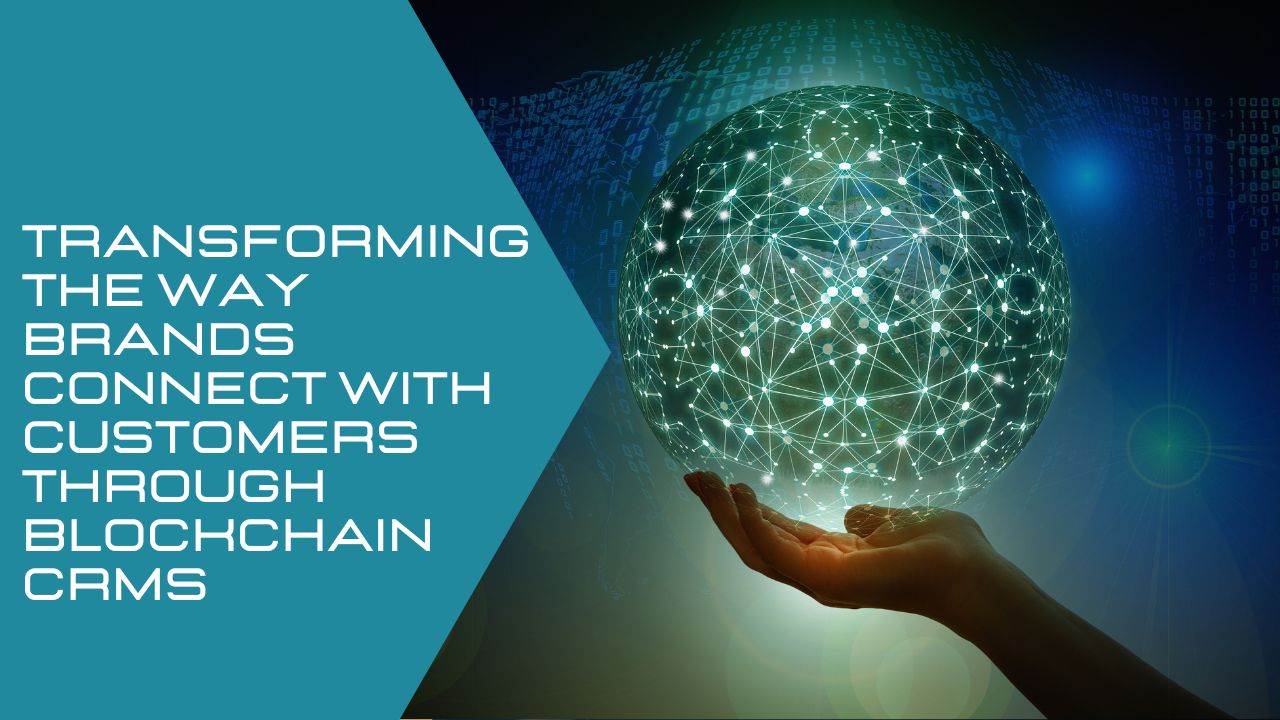Transforming the Way Brands Connect with Customers through Blockchain CRMs
Welcome to the new era of customer relationship management, where blockchain technology is revolutionizing the way brands connect with their customers. With its decentralized and secure nature, blockchain has the potential to transform how companies store, manage, and analyze customer data. In this blog post, we’ll explore how blockchain CRM is empowering brands to build stronger relationships with their customers and deliver personalized experiences like never before.
Introduction to Blockchain CRMs
A blockchain CRM is a customer relationship management system that uses blockchain technology to store and manage customer data. Blockchain CRMs provide a secure, decentralized way for businesses to store and access customer data. They also offer a number of other benefits, including increased transparency and improved data security.
Blockchain CRMs are still in their early stages of development, but they have the potential to transform the way businesses connect with customers. If you’re looking for a more secure and efficient way to manage your customer relationships, a blockchain CRM may be right for you.
The Benefits of Blockchain CRMs for Brands
While blockchain CRMs (customer relationship management systems) are still in their infancy, they hold a lot of promise for transforming the way brands connect with customers. Here are some of the ways that blockchain CRMs can benefit brands:
1. Increased security and transparency: One of the biggest advantages of using a blockchain CRM is that it can help to increase security and transparency throughout the customer relationship. By storing data on a decentralized, tamper-proof ledger, brands can be sure that customer data is safe from hacks and tampering. What’s more, customers can also easily view their own data to ensure that brands are using it appropriately.
2. Better data management: Another benefit of blockchain CRMs is that they can help brands to better manage customer data. With traditional centralized databases, it can be difficult to keep track of who has access to what data. This can lead to problems with data accuracy and privacy breaches. However, because blockchain CRMs store data on a decentralized ledger, brands can have greater control over who has access to which data points. This makes it easier to keep track of customer data and ensures that only authorized personnel have access to sensitive information.
3. Improved customer engagement: Blockchain CRMs also have the potential to improve customer engagement by making it easier for brands to connect with their customers on a personal level. Because blockchain CRMs store customer data on a decentralized ledger, brands can use this information to create targeted marketing campaigns .
How Blockchain CRM Help Streamline Processes
When it comes to customer relationship management, blockchain CRMs offer a number of advantages that can help streamline processes and improve efficiency. For one, because blockchain is a distributed ledger technology, all data is stored in a decentralized way, meaning that there is no single point of failure. This makes it more resistant to hacking and fraud, and ensures that data is always available when needed.
Additionally, blockchain CRMs can help automate many tasks that would traditionally be done manually. For example, they can automatically keep track of customer interactions and follow-ups, as well as manage loyalty programs and rewards. This not only saves time and resources, but also helps to ensure that nothing falls through the cracks.
Finally, blockchain CRMs can provide brands with valuable insights into their customers by tracking their behavior on the platform. This information can then be used to improve marketing efforts and target customers more effectively. In short, blockchain CRMs offer a number of advantages that can help brands better connect with their customers.
Security and Compliance Benefits of Using Blockchain CRM
When it comes to security and compliance, blockchain CRMs offer a number of advantages over traditional CRMs. For one, blockchain CRMs are decentralized, meaning that they are not subject to the same security risks as centralized CRMs. Additionally, blockchain CRMs use encryption to protect data, which makes it more difficult for hackers to access customer information. Finally, blockchain CRMs can help brands comply with regulations such as GDPR by providing a transparent and immutable record of customer data.
Examples of Companies Using Blockchain CRM
There are many examples of companies using blockchain CRMs to connect with customers in innovative ways. One example is Coca-Cola, which used a blockchain CRM to create a loyalty program for customers. The program allowed customers to earn rewards for purchasing Coca-Cola products and then redeem those rewards for other products or services. Another example is Walmart, which used a blockchain CRM to track the food supply chain and ensure that food was being delivered fresh and without contamination. Lastly, IBM used a blockchain CRM to develop a secure platform for healthcare data sharing. This allowed different healthcare organizations to share patient data while ensuring that the data was secure and could not be tampered with.
Conclusion
Blockchain CRMs have the potential to revolutionize customer relationship management and give companies a competitive edge. By offering customers more control over their data, blockchain-enabled CRMs can help build trust between brands and their customers while also providing valuable insights into customer behavior. With its powerful functionality, blockchain-based CRMs are paving the way for a new era of marketing and customer service—one that is rooted in transparency, collaboration and trust.




